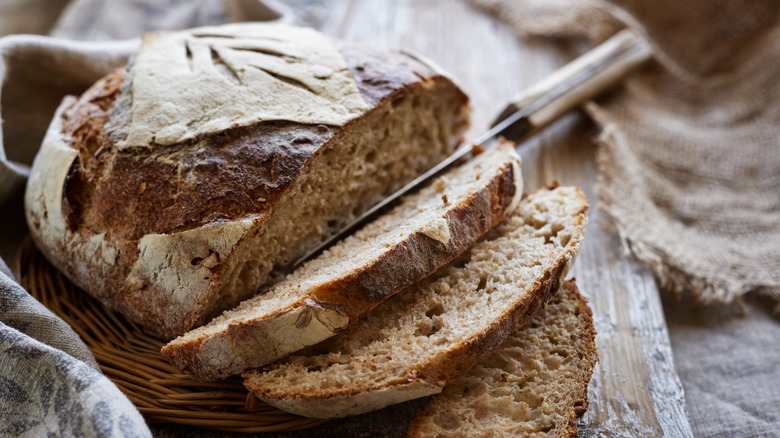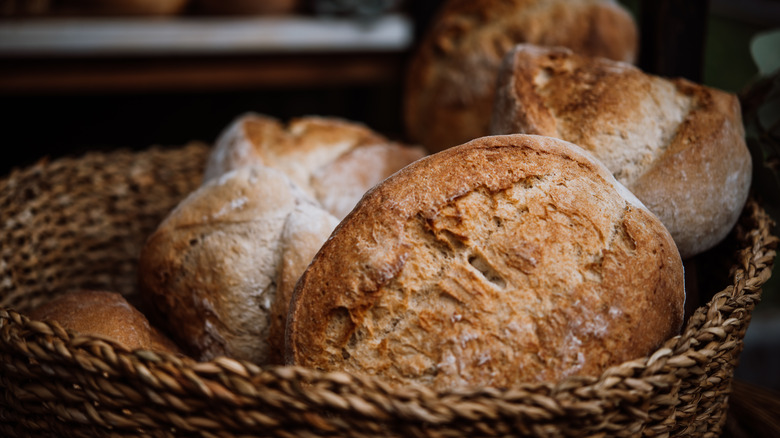What Makes Artisan Bread Special?
Bread is probably the most important food in history. Dating back tens of thousands of years, NPR describes that its very presence can tell us when exactly we shifted from our nomadic lifestyle and began farming. A pivotal food in cultures all across the globe, bread is a special food, but artisanal bread is even more so. The toasted and yeasty aroma of freshly baked bread is as undeniably intoxicating as it is comforting. But why is that?
Since aromas are processed by the olfactory bulb, which is directly connected to parts of the brain responsible for emotion and memory, The Irish Times explains that the mere smell of the carb can trigger nostalgia as it's such a heavily featured food during childhood. Too tempting to resist, we're constantly drawn to the starch. However, there's been a pull towards bread labeled as artisanal. While it might seem like just a marketing buzzword meant to influence our shopping habits (via Business Insider), artisan provisions do follow specific criteria that play a role in making them such a unique offering.
Handcrafted with quality ingredients and using traditional methods
A slice of commercial white bread is different from a rustic loaf of rye, proving that not all bread is created equally. While there is no precise or perfect definition of artisan bread, if images of just-baked baguettes, rounds of sourdough, and loaves of freeform ciabatta in baskets are what fill your mind, then you're on the right track.
Artisanal bread isn't a type of bread, but rather a style of bread that's based on using fresh, high-quality ingredients — flour, water, salt, and sometimes yeast — and employing old-school methods, notes Busby's Bakery. Always produced on a smaller scale, Bakerpedia categorizes artisan bread as being handmade, boasting pre-ferments, lean formulations, higher water levels, and lengthier fermentation periods. Loaves are often baked in hearth-style ovens and can have a rustic aesthetic or be ornately scored.
The unique thing about artisan bread is that it reflects the skill and dedication required for production. Beyond being an impressive expression of artistry, the loaves are also unique as bakers can experiment with herbs and spices. Thanks to longer fermentation, Le Cordon Bleu explains that flavors, aromas, and textures are able to become more complex, resulting in better bread. Artisanal loaves have richly toasted exteriors with super moist, yet tangy, interiors that are littered with wide and airy pockets. Definitely, worth the hype, it's time to start supporting your local boulangerie!

